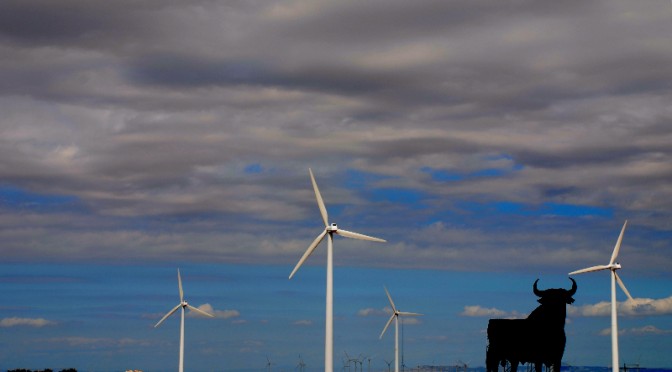In 2013 wind power was the leading source of electricity in Spain, but wind energy is facing huge regulatory hurdles – the latest of which will be discussed in detail at EWEA 2014 in Barcelona on Wednesday 12 March. We spoke to Jaume Margarit Roset, Director General of the association of renewable energies in Spain, APPA, to find out what’s been going on…
What are the main regulatory problems Spain has faced in recent years?
In January 2012 the newly-elected government introduced a moratorium on all new wind power installations in Spain and since then only the projects that were already underway have been completed.
Then a new regulation came into force which implies that all wind farms in Spain built before 2005 will not receive tariffs. This makes it very difficult for financing – your income estimates will change because of this. Some companies could fail.
The regulation works against investor confidence. When there is a framework that ensures good conditions, investments happen. When this is changed by the government, investors don’t know what is happening. The government has demonstrated that it doesn’t trust wind; that it is working in another direction. It plans to promote fossil fuels.
Why does the government not trust wind?
In Spain the electricity system has a deficit of €30 billion – this is a big problem for the government and the EU has told the government to solve it. The government thinks this deficit is because renewables are receiving tariffs.
But the electricity market in Spain is not efficient. For example, nuclear power costs €17 per Megawatt hour but it receives €50/MWh from the government. At a time when we need to reduce the deficit we could modify this, but the government is only interested in targeting renewables.
Could there be a contagion effect across Europe?
We know that some people in the European Commission and in other European governments follow the same line of thinking as the Spanish government. There is a strong lobby in Europe fighting against renewables. We need to stop these ideas.
What are the benefits of wind power in Spain?
Renewable energy reduces the cost of electricity in Spain by about €4 billion every year – this affects the whole of the Spanish economy, and wind is the main contributor to this.
Wind represents about 0.3% of Spain’s GDP and many jobs. In 2008 wind employed 41,000 people, but by 2012 this had fallen in 23,000 – the decisions of the government are clearly already affecting jobs.
European wind energy is very competitive, it is a net exporter, a new economy should be built around this sector.
Wind technology is very mature and it already takes an important role like in Spain – in 2013 wind was for the first time the leading producer of electricity providing more electricity than nuclear and gas. This proves the technology has matured. Wind can assume this leading role, it is a competitive technology.
How can wind power make its benefits known?
It is important to explain the truth. Wind is very competitive. It is important that the costs of renewables are clear. And, nobody knows the real cost of fossil fuels which are hidden. We need to take this into account.
GDP creation, CO2 emission cuts, job creation and energy independence – it is important that politicians have this information.
European wind energy is very competitive, it is a net exporter, a new economy should be built around this sector.
If you are involved in the Spanish wind sector, then this side event taking place at EWEA 2014 is a must-attend for your business.
By Zoë Casey


